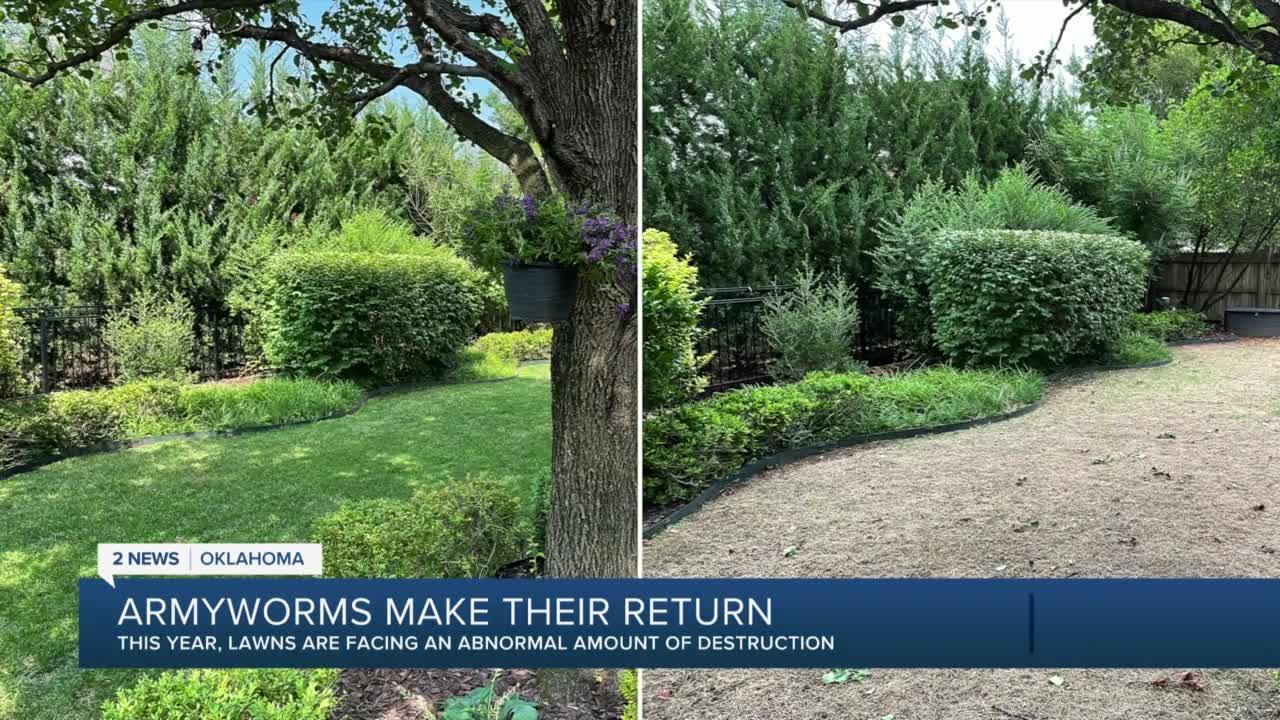TULSA, Okla. — Has your grass gone from an enjoyable late summer lawn to completely dead in a few days? You aren't alone. Many of our viewers, including myself, are fighting the same battle and it's frustrating.
"What happens is that we get a yearly migration of the adult moths that move into our area from the gulf coast states," says Eric Rebek, a Professor of Entomology at OSU.
Eric, along with my lawn treatment expert, say the destruction of lawns by the fall armyworm hasn't been this bad in almost 20 years.
"They're feeding on everything that they find. Then they move onto the next patch of turf or food source that they encounter," says Rebek.
He says they're strictly feeding above ground on the grass leaf blades and there are certain grasses that armyworms prefer.
"Fescues, bluegrasses, rye grasses, those are that group of cool season grasses," explains Rebek.
You're in luck if the worms killed off a different type of grass because there's a chance it'll grown back.
"If it's a warm season grass like bermuda grass or zoysia grass they can grow back from that damage if you keep it well watered," says Rebek.
Of course there are harsh chemicals that can combat the worm infestation, but if you're looking for a safer alternative, he suggests the following.
"Anything that has BT on the label, that's more of an organic approach because BT is very selective. It only works on caterpillars so you don't have to worry about contaminating pollinators for instance," says Rebek.
In addition, Tulsa firefighters figured out that a COVID-19 disinfecting spray they use called Clean Fight also kills them.
"It's what we've been using to fight COVID, STAPH, MRSA, all your bacteria and viruses. We had some armyworms like unfortunately everybody else does so we went ahead and applied some to them and it takes care of them too," says Keith Hickson, a retired Tulsa firefighter.
It's also a safe alternative.
"It won't harm or damage butterflies, bees, any of the pollinators who are out there. It also has a negative impact on your pets," explains Hickson.
Stay in touch with us anytime, anywhere --
- Download our free app for Apple, Android and Kindle devices.
- Sign up for daily newsletters emailed to you
- Like us on Facebook
- Follow us on Instagram
- Follow us on Twitter




